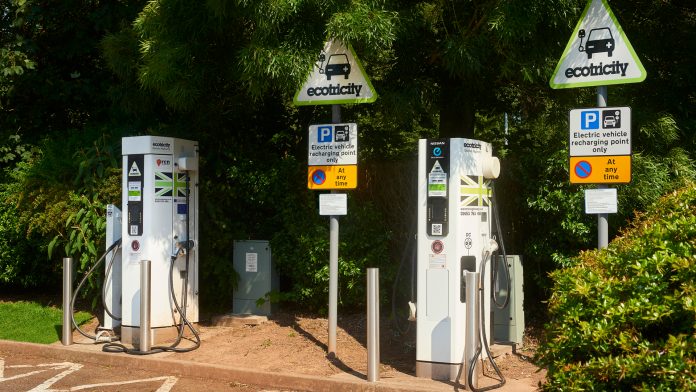The UK’s rapid charging fund will aid motorway and major A road service area operators prepare networks for zero emission vehicles.
The UK’s novel rapid charging fund (RCF) is a staggering £950m fund to future-proof electrical capacity at motorway and major A road service areas in order to prepare the network for a future of 100% zero emissions vehicles (ZEV).
The operators of motorway and major A road service areas will be eligible to apply for the rapid charging fund, the details of which will be released in the near future.
Ten-point plan for a green industrial revolution
In November 2020, the UK government announced a ten-point plan for a green industrial revolution, where they committed to putting an end to the sale of new petrol and diesel cars and vans by 2030. From this year, all new vehicles must have substantial zero emission capabilities, and from 2035, all new vehicles must be 100% zero emission.
The RCF was revealed in March 2020 by the Chancellor of the Exchequer as part of a £500 million funding promise to facilitate the rollout of a high-powered network for electric vehicles (EVs) in England.
The UK vision for a rapid chargepoint network
In May 2020, the Department for Transport (DfT) published a government vision for the rapid chargepoint network in England. As part of that plan, the government committed to accomplishing the following targets:
- By 2023, to have a minimum of six high-powered, open access chargepoints (150-350 kW capable) at motorway service areas in England
- By 2030, the government anticipates about 2,500 high-powered, open access chargepoints across England’s motorways and major A roads
- by 2035, it is hoped that there will be 6,000 high-powered, open access chargepoints across England’s motorways and major A roads.
National Infrastructure Strategy
As part of the November 2020 Spending Review and the National Infrastructure Strategy, the government revealed that funding for EV infrastructure would be expanded to a total of £1.3bn across the following three years.
This comprised a boost in the rapid charging fund to £950 million, as well as expanding the existing grant programmes for workplaces, homes and on-street charging, and a new £90 million fund for larger-scale local charging projects.
On top of this, the National Infrastructure Strategy explained that the government anticipates that the private sector will provide chargepoints where they are economically feasible, and that the government will only interfere if there is a clear market failure.









